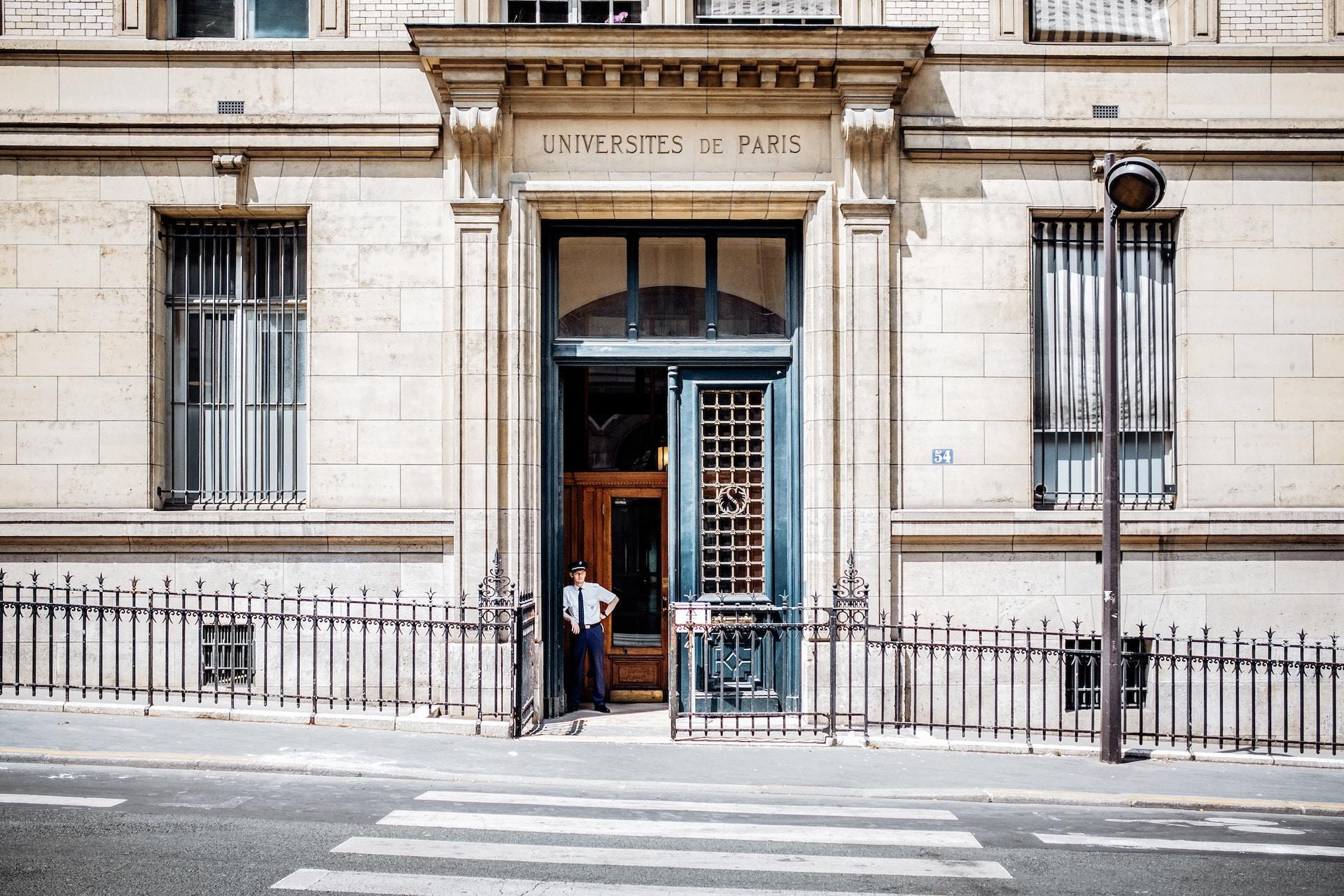The experiences had in higher education are more than just about schooling, they allow you to gain more exposure to the world and improve independence!
University costs are very high in places like Australia, the UK, and the US, but there are more affordable options elsewhere in the world! Cue: France!
France hosts many prestigious, well-ranking universities. There are many cities, including and beyond Paris, that offer opportunities for multicultural and international connections. And, many corporations hire students from French universities thanks to the close ties they have with each other.
All of these professional advantages, combined with the opportunity to easily become multilingual while enjoying the sights and attractions of this beautiful country, are all great reasons to pursue higher education in France!

Best Universities for International Students
While often overlooked in the global awareness of universities, France has quite a few fantastic institutions thank consistently rank highly on the global scale.
Top 10 Universities in France
According to Times Higher Education’s World University Rankings, these French schools ranked among the best in the world for 2023:
- Paris Sciences et Lettres – PSL Research University Paris - #47 globally
- Sorbonne University - #90 globally
- Université Paris-Saclay - #90 globally
- Institut Polytechnique de Paris - #95 globally
- Université Paris Cité - #114 globally
- École des Ponts ParisTech - #251-300 globally
- Aix-Marseille University - #301-350 globally
- University of Bordeaux - #301-350 globally
- École Normale Supérieure de Lyon - #301-350 globally
- Montpellier University - #301-350 globally
For reference, only the top 500 universities in the world are even given a score on this list, and there are over 25,000 universities in the world.
Other great universities for international students in France include INSEAD Europe, Sciences Po, Le Cordon Bleu, Beaux-Arts de Paris, and ESMOD International.

Best Subjects to Study in French Universities
You can find just about every subject at one French university or another, but what are the ones that are the most comprehensive?
As a whole, France is known for Finance, International Business, Biotechnology, Art, and Fashion (of course!).
Since France is part of the Eurozone, you can expect to make connections with international companies like J.P. Morgan and Unilever as well as large European companies. If you’re in the Finance or International Business vein, these connections are invaluable and can help secure your career after graduation, in France or elsewhere.
There are over 400 biotech companies in France, so there are numerous opportunities to break into that field if you study there and learn all the French biotech jargon.
Of course, Art and Fashion are probably two of the things France has historically been known for, so you know that an education in these subjects in France is going to be fantastic, and will impress anyone you come across in your career.
Learn the basics before you go with French classes Melbourne.
Can I Study in France if I Don’t Speak French?
Most universities offer at least some of their courses in English, so you don’t need to know French well enough to take classes taught in the language, at least to start with. Many universities also provide intensive language classes so you can learn French while completing your other studies. The universities want you to be able to navigate the French world with ease, communicate with other French speakers, and eventually take classes that may be taught in French.
Start taking French courses with the right tutors on Superprof.
Best Cities for Students in France
Another important aspect of choosing a location for your university education is the city. Do you want to be in a big city or a smaller town? Do you want to be able to travel to new places on the weekends? Is it important for you to be near the ocean or the mountains? Do you want easy access to all sorts of food?
While these questions are secondary to “where can I get the best education,” they are still essential to consider. You’ll be spending a lot of time in these places, so you must enjoy the environment!
Some of the best French cities for student life are:
- Paris
- Lyon
- Grenoble
- Nice
- Toulouse
- Montpellier

The Best and Worst Things About French Cities
There’s no doubt that France is a beautiful country, but everywhere on earth has its pluses and minuses.
Pros
In French cities, the best things you will discover are transportation options, availability/convenience of essential goods, culture, activities, and affordability (except perhaps for Paris).
Much of France is well-connected both locally and across regions. In the cities, you will find a metro or bus network to help you get around town. You can also rent or own a bike or scooter for ease of travel. And, plane tickets to other parts of France and even other European countries are relatively cheap!
There are generally shops all over the cities where you can find things like groceries, pharmaceuticals, haircuts, and doctors and dentists. No matter what neighbourhood you’re in, you will have a few choices for these types of services.
Since France is an international hub (in the cities especially), you will be able to find festivals, restaurants, and events that introduce you to new cultures. Not just French culture! There are large populations of Portuguese, Spanish, Italian, German, Algerian, Moroccan, and other peoples, too!
Everywhere, you can find things like museums, parks and gardens, musical shows, and more to spend your time. There are a lot of medieval towns just outside the major cities which can make a great day trip. You could also take a train to the mountains or the sea for the weekend!
Rent and other costs of living are relatively affordable, especially compared to some Australian, US, and other European cities.
Cons
The struggles and troubles you might encounter while living in France are the language barrier, bureaucracy, strikes, and expenses (in Paris).
While many people in France do speak English, there are some situations where you need to know French. Not everyone you meet will know it or be confident enough with their English to communicate with you. While not prevalent, it’s not uncommon for some French people to avoid interacting with people they feel don’t understand French well enough.
Only 39% of French people report believing they speak English well.
The bureaucracy, l’administration, can be a headache, even for French citizens. You cannot be sure that anyone you deal with in the government will know English, so you need to know French or have an interpreter friend help you with paperwork and phone calls.
Protests, strikes, demonstrations, and manifestations are common occurrences in France. As great as it is that the citizens of France can make their voices heard, it presents some inconveniences to everyday life. You may need to research and avoid certain areas unless you want to be part of the manifestation. Things like transportation, sanitation, and other conveniences may suffer as the workers strike or are prevented from working efficiently.
Finally, it can be expensive to live in cities, especially Paris. Depending on your lifestyle, you can make living in any city affordable, but it’s much harder to find a cheap place in the big cities.

Cost of Attending University in France
As mentioned before, the costs of university in France are much lower compared to some other countries.
Public universities in France follow a rate set by the government since they are subsidised. French nationals pay less than international students, but even the international rate is not too high. Here is a breakdown of the pricing system:
- €2,770 per year at the licence (bachelor) level
- €3,770 per year at the master level
- €380 per year at the doctorate level
Private institutions charge a higher rate since they are unsubsidised. On average, the cost of tuition at a private university is between €3,000 and €10,000 per year.
You can always apply for a scholarship or multiple scholarships and grants to make your tuition costs even more affordable.
Remember to calculate other costs and fees into the total you need to spend to attend any universities in France.
Other things to consider are:
- Application fee
- Cost of taking GMAT and LSAT tests
- Language proficiency classes and tests
- Long-Stay visa
- Health insurance
- Room & Board / Rent
- Meals
- Transportation
- Activities
- Phone service plan
What Documents Do I Need to Apply to University in France?
As with any institute of higher learning, there are a lot of things you need to apply for to attend. Especially as an international student, you must ensure that you have all your ducks in a row for both the admissions materials and the federal materials needed to stay as a student in the country. Some things you will only need to apply to the first time you become a French student and other things must be applied for every year.
Required Documents for Admission into France as an International Student
- Prior admission or pre-registration certificate provided by the university
- Campus France authorization
- Passport or ID card (valid for the duration of your stay)
- ID/passport-type photos
- Copies of graduation diplomas and their French translation
- Registration fee
- Social security registration (free)
- A civil liability certificate
- Resume (only in some cases, and only for postgraduate degrees)
- Cover letter
- French and/or English Language certificate (depending on tuition language of chosen degree)
- Transcript of records
- Copies of diplomas (if not available, a certificate stating you graduated)
- Proof that you can fund your stay in France (with a minimum of 800 EUR per month)
Keep in mind that many of these documents require payment, as well.
Studying in France can be rewarding and fun, full of opportunities to grow your independence and post-graduation life. It may seem like a daunting to-do list to apply for and attend university abroad, but with perseverance and patience, you can do it! In 2021, about 250,000 international students attended studies in France! So, consider French universities in your search for schools! You are not alone, and you can study in France if you want!
Find French courses Sydney or any other city here on Superprof!
Summarise with AI:
























